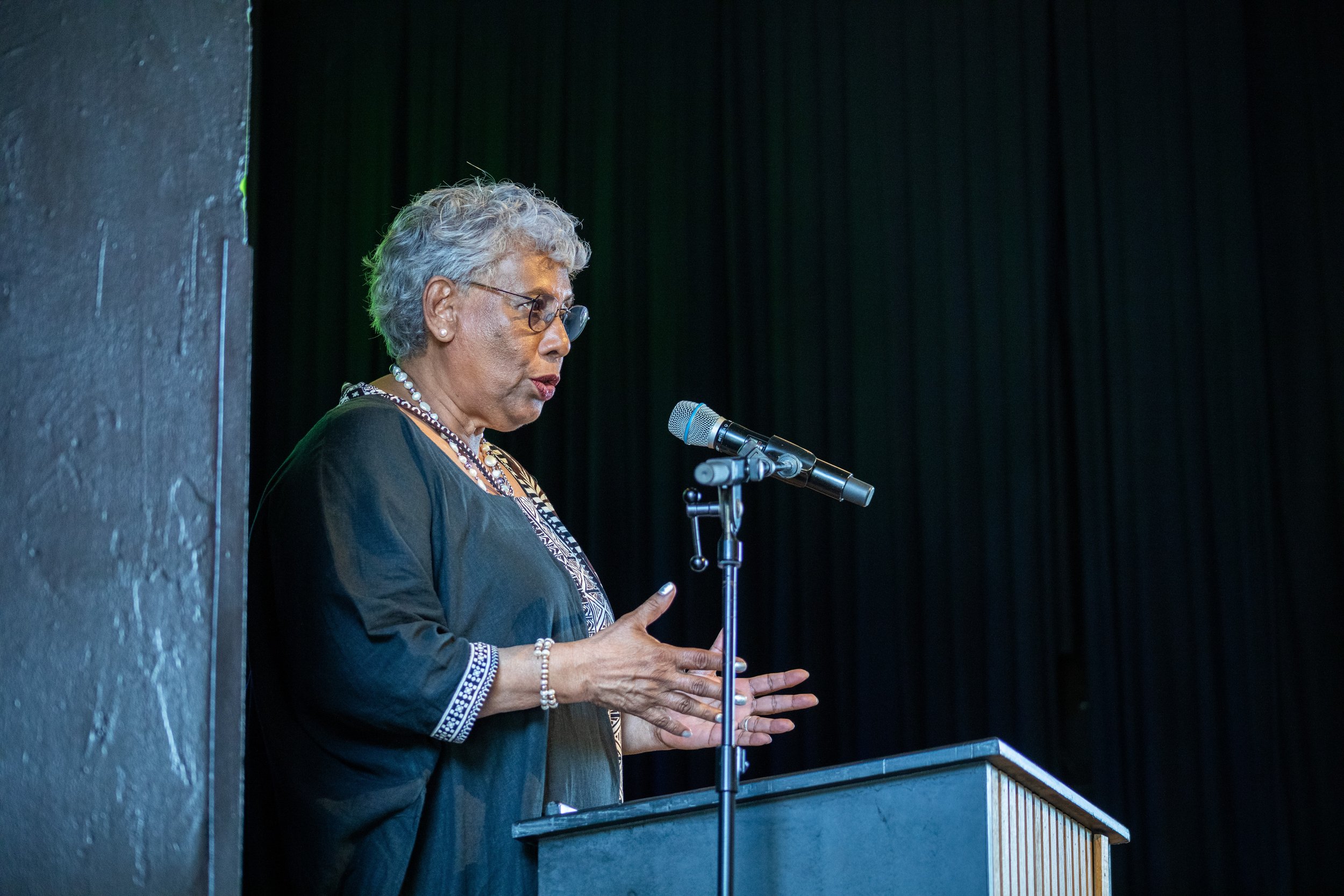Small Island States and the Fight for Climate Justice
From December 2 to 13, 2024, the International Court of Justice (ICJ) will hold public hearings on the obligations of States concerning climate change, an unprecedented step toward clarifying how international law can address one of the greatest challenges of our time. With 98 States and 12 international organizations participating in these hearings, the global community is seizing this moment to push for accountability, equity, and justice. Among the intervenors is the Commission of Small Island States on Climate Change and International Law (COSIS), representing the nations most vulnerable to the climate crisis.
Professor Shaista Shameem at UCLA Law Promise Institute Europe launch Conference in May 2024
COSIS and its Role in the ICJ Hearings
Small Island Developing States (SIDS) are among the least responsible for climate change but face its most severe consequences, including rising sea levels, extreme weather events, loss of biodiversity, and even the existential threat of submersion. In response to this crisis and the international community’s inaction, COSIS was established in 2021 by Antigua and Barbuda and Tuvalu, later joined by other SIDS, to amplify their voices in international legal forums. COSIS aims to use international law to protect the rights of SIDS, holding States accountable for their obligations to mitigate and adapt to the effects of climate change.
COSIS is one of the many intervenors that will present arguments during the ICJ hearings, contributing legal and scientific insights. They filed written submissions and will participate in the public hearings on December 13. This intervention builds on their efforts before the International Tribunal for the Law of the Sea (ITLOS), where COSIS secured a landmark advisory opinion on States' obligations to combat climate change under the Law of the Sea.
Panel Unravelling the ITLOS Advisory Opinion: Climate Change, Justice & Future of Law of the Sea. From left to right Ms. Monica Feria-Tinta (chair) Ms. Naima Te Maile Fifita Dr. Shobha Maharaj
Voices from Our May Launch Conference
At our May launch conference, ‘The Promise of International Law in the Face of Ecological Crises’, four experts affiliated with COSIS shared invaluable perspectives on the fight for climate justice by small island states. As the ICJ hearings approach, their insights take on additional significance.
Professor Nilufer Oral, who serves as a member of the Committee of Legal Experts of COSIS, discussed the unique and powerful role of various international legal frameworks in addressing climate change. As co-chair of the UN International Law Commission’s Study Group on sea-level rise and a member of the International Law Commission, Professor Oral underscored the urgent need for innovative legal approaches – such as the groundbreaking advisory opinion issued by ITLOS in May – to protect vulnerable maritime nations and adapt to the challenges posed by rising seas.
Professor Shaista Shameem, who also serves as a member of the Committee of Legal Experts of COSIS, called attention to the holistic relationship between humans and the environment. "There is no scientific distinction between the human and the environment," she said, urging that climate policies consider the interconnected impacts on ecosystems and human health. If one element is compromised, she warned, the effects ripple across the whole system.
Naima Te Maile Fifita spoke about the unique values of reciprocity in Pacific communities, emphasizing that when one individual suffers, it is the village's collective responsibility to respond. She reminded us that small island nations contribute the least but suffer the most from climate change, spending their time not only enduring its impacts but proving to the world why it must care. Her remarks also highlighted the importance of integrating Indigenous knowledge and ways of knowing into scientific monitoring. In September 2023 Ms. Fifita addressed the International Tribunal for the Law of the Sea (ITLOS) as a member of the COSIS delegation, which had submitted the request for an advisory opinion on climate change and international law.
Dr. Shobha Maharaj shared her expertise as a climate impacts scientist, discussing various challenges of integrating evidence and equity into global climate governance. She also highlighted how international funding institutions often require Global South organizations to partner with Global North counterparts to access funding, a practice that undermines the autonomy of affected regions. Her remarks underscored the need for more inclusive and equitable systems to address the climate crisis effectively. Dr. Maharaj has contributed scientific evidence to all three requests for advisory opinions on climate change from international courts, including the upcoming ICJ hearings. She was one of the two scientists who provided evidence (both written and oral testimony) on behalf of COSIS at the ITLOS hearings.
As we prepare to hear COSIS’s important intervention, alongside more than 100 others, the significance of these landmark hearings cannot be overstated. This moment is a crucial opportunity for the ICJ to clarify the legal obligations of States under international law and to push for a coherent, robust response to the climate crisis.
To hear more from these four experts on the groundbreaking advisory opinions and the themes now at the forefront of the ICJ hearings, watch the videos of their panels below.
“Unravelling the ITLOS Advisory Opinion: Climate Change, Justice, and the Future of the Law of the Sea”: Ms. Monica Feria-Tinta (chair); Ms. Naima Te Maile Fifita; Dr. Shobha Maharaj; Professor Nilufer Oral
“Exploring the IACHR Advisory Proceedings: Environmental Rights and Climate Justice”: Professor Fernando Lusa Bordin (chair); Professor David Berry; Alofipo So’oalo Fleur Ramsay; Professor Shaista Shameem


